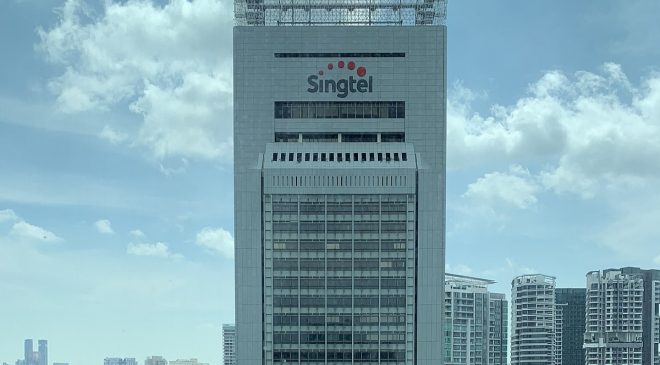
New strategic direction to capture growth and unlock value.
Singtel has recently released its strategic direction designed to capture untapped digital growth in the 5G era, sharpen the Group’s focus and improve shareholder value.
The strategic reset centres around three key tenets – leveraging its 5G leadership to reinvigorate its core consumer and enterprise businesses; developing new growth engines in ICT and digital services; and unlocking the value of its quality infrastructure assets. The move comes as digital economies experience a global growth spurt, amplified in part by COVID-19, creating a new and urgent dependency on telecommunications as a platform.
With strong investment in leading 5G networks, the Group will realign its core business to drive its quest for 5G market share in Singapore and Australia.
On the enterprise side, the focus will be on growing 5G enterprise and cloud solutions in Singapore, Australia and the Group’s regional associates. The Group will also double down on the digitalisation of its operations to drive productivity, make cost improvements and get even more digital.
To capitalise on the large-scale digitalisation underway, Singtel will develop a number of new growth engines, key among these being NCS.
After seven straight years of positive revenue growth, mostly on the back of the public sector in Singapore, the ICT subsidiary will be repositioned for growth, with the goal of becoming a B2B digital services champion in Asia Pacific. Working off its strengths and domain expertise in servicing the public sector and the Singtel Group, NCS will set up two strategic business units to focus on the key sectors of government and telecoms, as digitalisation of processes and services continue to accelerate.
It is also setting its sights on expediting growth in the enterprise sector, particularly healthcare and transport, communications, technology and media and financial services, in the markets of Singapore, Australia and Greater China. In a Group-wide reorganisation at the start of the year, NCS was carved out as an independent business unit, as a first step towards realising this new remit and ambition. Cyber security remains a key growth driver for NCS and the Group will be reorganising part of Trustwave’s technology services into NCS.
Singtel will step up the building out of a digital ecosystem with its regional associates, leveraging its scale and reach to capture growth in digital services and grow capital. This will mean adopting a multi-local strategy, when working with associates to create and port where viable, lifestyle products, services, business segments or even companies across its regional footprint.
Leveraging Singtel’s well-known brand and 5G leadership, such an approach could take the form of partnerships with digital natives and strategic investors with complementary capabilities and capital. A recent example of this is the propagation of the digital mobile brand GOMO. Conceived by Singtel in Singapore, GOMO has been successfully adopted by Optus, AIS, Globe as well as Telkomsel (rebranded as by.U) to cater to their respective millennial customer segments.
Singtel also guided and supported Telkomsel’s participation in a US$100 million Series B funding round in Indonesian e-wallet LinkAja along with other investors like Grab and Gojek. In addition, Singtel lent support to Globe whose fintech arm Mynt recently raised US$175 million at a valuation close to US$1 billion.
With accelerated digitalisation fuelling connectivity and demand for critical infrastructure, Singtel is exploring options to leverage its infrastructure assets to unlock latent value and drive growth. The Group currently holds a large and unique portfolio of infrastructure assets including towers, satellites, subsea cables and data centres across the region. It has already begun a partial sale via auction of Optus’ towers in Australia to maximise proceeds from the sale and seeks to more actively recycle its assets.
Singapore and its economic recovery, it is also important that we unlock the value of these assets so that we can continue to reinvest in world-class infrastructure that will sustain an environment for investment and innovation, and support our businesses, our society and our shared future.”




